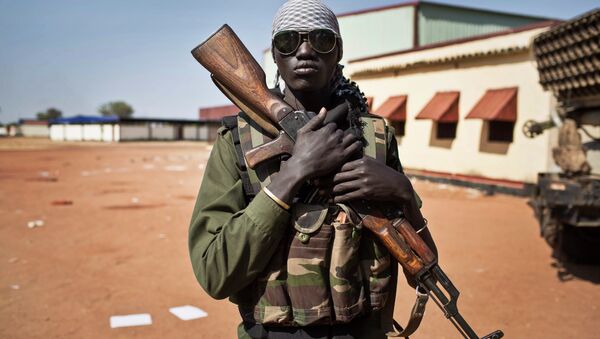"The United States' original interest was oil," Macgregor said. "The civil war in Sudan and the splitting of the country into two states — north Muslim and south largely Christian — presented Washington with the opportunity to engage in state building in the largely Christian half."
However, a US-backed peace agreement to end two years of civil war between feuding factions in South Sudan collapsed on July 8 when violent clashes erupted in Juba between factions led by South Sudan’s President Salva Kiir and Vice President Riek Machar.
The US government was working hard to force the two sides to accept the compromise agreement when fighting resumed.
Macgregor, a military historian, noted that the latest fighting, which involved both artillery and aircraft, was a serious blow to US President Barack Obama’s Africa strategy.
"Now, the Obama administration's efforts to halt a new civil war in [South Sudan] are in serious jeopardy," he observed.
Obama had invested his personal interest and prestige in the South Sudan peace process, so its failure could prove humiliating to him, Macgregor explained.
"Washington desperately wants an ‘African success story’ for ideological reasons," he pointed out, and the US government is "applying enormous pressure to stop all fighting and bring the leadership in line."
However, Macgregor noted that neither diplomacy nor economic incentives seemed likely to overcome the personal distrust and grudges between the conflicting forces.
"There is no guarantee the United States can impose order on the new state," he acknowledged.
Doug Macgregor holds a doctoral degree in international relations from the University of Virginia. He commanded the Battle of 73 Easting, a decisive tank fight during the 1991 Gulf War.



